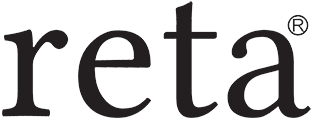
KEY COMPONENTS OF A PROFESSIONAL WEBSITE
When creating a professional website, it is important to focus on a number of important elements to improve user experience and credibility. Here are some must-have elements of a professional website:
A Pleasing Design:
A clean, organised and user-friendly design gives visitors a professional impression. Colour harmony, typography and overall layout are important elements of design.
Responsiveness (Responsive Design):
Responsive design, which allows the website to be displayed smoothly on different devices (computers, tablets, mobile phones), increases the user experience and is important for SEO.
Fast Loading Time:
A fast loading website attracts the attention of users and increases the performance of the site. Speed optimisation can increase user satisfaction as well as affect search engine rankings.
Clear and Understandable Menu:
Users want to navigate the website comfortably. A clear menu structure allows visitors to quickly access the content they want.
A Strong Contact Page:
The contact page allows visitors to contact your company. It should include contact information such as phone number, e-mail address and physical address.
Security Measures:
Security measures such as SSL certificates protect user information and provide a reliable environment. Security is a critical element, especially for e-commerce sites.
SEO Optimisation:
Basic SEO (Search Engine Optimisation) applications allow the website to rank better in search engines. Correct title tags, meta descriptions and appropriate keywords should be used.
About Us Page:
About Us page provides information about your company’s history, mission and team. This page gives visitors the opportunity to better understand your company.
Social Media Integration:
Social media buttons and sharing options allow visitors to share content on social media and strengthen your company’s social media presence.
Strong Visuals and Media:
Quality images, graphics and videos attract visitors and make the content more attractive. However, it is important that visual content is optimised for fast loading.
Interactive Elements:
Interactive elements such as buttons, forms, scrolling effects improve the user experience and make the website more engaging.
Blog or Content Section:
A blog with up-to-date and quality content allows visitors to spend more time on your site and learn more about your company.
These elements are the basic components of a professional website. A good website should be a tool that impresses users, is reliable and accurately reflects the identity of your business.



